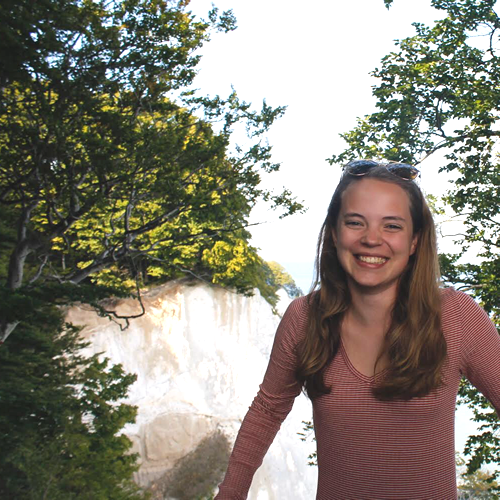Session 1: 10:00 AM - 11:30 AM
Panel C: Respecting Personhood: Understanding How to Better Serve Individuals with Disabilities
Moderated by Susan Blum
C102 Hesburgh Center
Providing disabled individuals with effective, sustainable programs is a vital step towards helping these marginalized members of society to live more fulfilling lives. Implementing such programs is not easy though, and these panelists will present many of the challenges faced by organizations around the world in the service of disabled populations.
Engaging Disability Amidst Turmoil: A Comparative Analysis of Palestinian Organizations Working with Adults with Disabilities
Shannon Hendricks, University of Notre Dame
Abstract: In an oppressed society, people with disabilities tend to get pushed even further to the margins of society. According to the Palestinian Central Bureau of Statistics, over 113,000 people suffer from at least one severe disability. Through my research, I investigated the barriers that influence treatment of disability in Palestine and what services are available for this group of people. I examined the type and level of services and opportunities provided, the goals and number of people served, and the medium to long term prospects of the stability of each organization. More specifically, I studied how Ma’an Lil Hayat, a L’Arche community in Bethlehem, is able to be successful despite these barriers. This project examines further how an organization serving a vulnerable community in occupation can be successful and will be able to provide useful information on how to best serve people with disabilities in Palestine through a comparative analysis of organizations interviewed. Despite extreme barriers due to living under occupation, no governmental funding, and intense stigmas against people with disabilities, Ma’an Lil Hayat provides independence, community, and purpose for this group of people who are marginalized. Ma’an Lil Hayat is able to provide a successful model for organizations around the world serving people with disabilities in high-conflict zones because of their intentional community, leadership, and ability to integrate their culture into their practices.
Bio: Shannon is a senior living in Badin Hall. She has a major in Business Analytics and a minor in Catholic Social Tradition. On campus, Shannon starts for the Notre Dame Women's Soccer Team, serves with Special Olympics, is a member of the Student-Athlete Advisory Council, and the Rosenthal Leadership Academy. She focuses her research on fostering rights and resources for individuals with intellectual and developmental disabilities. During her time in the field, she enjoyed meeting and witness the continuous hope and joy of the people who are working endlessly to include the most vulnerable in society.

Investigating Day Programs for Adults with Intellectual and Developmental Disabilities: The Provider’s Perspective
Alice Felker, University of Notre Dame
Abstract: Day Habilitation Programs have functioned as an alternative option to employment for adults with Intellectual and Developmental Disabilities (IDD) who are not eligible for supported employment. While these programs benefit participants socially, challenges in providing meaningful activities and creating opportunities for inclusive community-building raise questions about the quality of service delivery. Fifteen providers in the Maryland, Virginia, and DC area participated in an online survey on day programming. Questions assessed the level of agreement with statements relating to relationships to regulatory bodies, commitment to the individuals they serve, and meaningfulness of activity offerings. Additionally, descriptive information on program size and composition was collected. Programs were also asked to identify their greatest strengths and challenges in serving people with IDD. Respondents indicated a lack of interest in more government guidance, contrasting previous claims that day programs lack specific requirements. Additionally, providers indicated challenges related to staffing, particularly in relation to finding quality employees, spreading responsibility evenly among staff, and retaining employees for more than two years. This finding provides evidence for the vacancy-burnout-turnover cycle, where direct support professionals are overburdened and eventually burned out due to insufficient staffing, which leads to turnover and further vacancies. Findings indicate a need for policy intervention to support day programs with staffing and governmental regulation procedures so that participants can be best served. Student loan forgiveness programs, job-preview initiatives, and rewards for high-performing veteran employees should be considered. The seemingly strained relationship between the government and service providers must also be addressed.
Bio: Alice is a juniorPsychology major and ACMS supplementary major from Badin Hall. When not in class, Alice is involved with Best Buddies, CLAD Lab (Cognitive, Learning, and Development Lab), and the Writing Center. Her main topics of research are Disability services and Disability Rights law.

Barriers to Accessing and Providing Quality Healthcare for Caregivers of People with Intellectual Disabilities in India
Keven Cheung, University of Notre Dame
Abstract: People with disabilities are one seventh of the global population, making them the largest minority group in the world. With a population of 1.3 billion, India has a 2% range (1-3%) in prevalence of intellectual disability, which has the potential to greatly affect government policies, budgets and services for this marginalized population. Barriers to accessing quality healthcare for people with intellectual disabilities (PWID) in India have been defined in three categories: cognitive, financial, and structural. Cognitive barriers, which range from properly understanding and treating a patient to being aware of public service provision, will be studied as they have the greatest immediate potential to enact change. Caregivers who work directly with PWID fall in four domains, parents, medical professionals, rehabilitation professionals, and organization staff. Through 52 semi structured interviews across two different cities – Kozhikode, Kerala and Lucknow, Uttar Pradesh – this project will examine the emergence of cognitive, cultural, social and political barriers faced by caregivers of people with intellectual disabilities in accessing and providing quality healthcare. The results suggest that there is a lack of sensitivity and understanding of PWID coupled with insufficient awareness of public services. Implementation of legislation is extremely poor and improvements to providing and accessing quality healthcare have strong social, cultural and political impediments. The findings suggest more research into the reasons for lack of effective implementation, religious influences to care and a more in depth look into the relationship between the private and public service sector for PWID.





